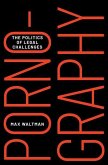A central debate among scholars of Marx concerns whether Marxism has a moral content or is totally "amoral"--perhaps either because it embraces a strict economic determinism or because it nihilistically sides with the proletariat without offering any objective justification for that stance. Philosopher Vanessa Christina Wills argues that Marx does articulate an ethical perspective that is present throughout his writings, both the more obviously humanistic and philosophical early writings and his later, economic and more empirically-grounded studies such as Capital. The purposiveness of labor gives rise to a normativity already inherent in the present state of things, one that can guide us in knowing what sort of world we should build and that further, prepares us to build it.
Hinweis: Dieser Artikel kann nur an eine deutsche Lieferadresse ausgeliefert werden.
Hinweis: Dieser Artikel kann nur an eine deutsche Lieferadresse ausgeliefert werden.








